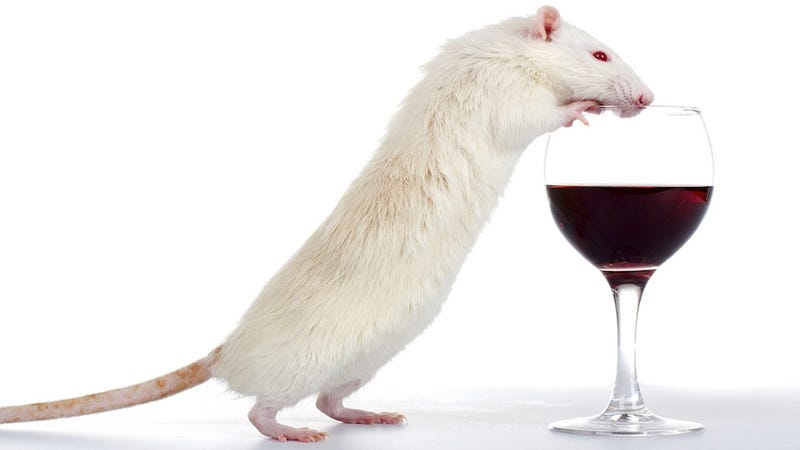*In male mice. And not a lot.
The Journal of Immunology
Alcohol consumption leads to sex-specific amelioration of disability in a mouse model of multiple sclerosis
Blaine Caslin, Aditi Karmakar, Cole Maguire, Kristen Helmsdoerfer, Kailey Mohler, Stefanie Kirwin, Dennis Wylie and Esther Melamed
J Immunol May 1, 2019, 202 (1 Supplement) 193.5;
Abstract
Multiple sclerosis (MS) is a neuroinflammatory autoimmune disorder and the leading cause of neurological disability in young people. Alcohol consumption is known to have both neuroinflammatory and immunosuppressive effects, yet despite high rates of alcohol abuse among MS patients, its effects on MS disease progression have not been well studied. The few studies on alcohol consumption during MS have produced conflicting results and suggest opposing clinical outcomes at different alcohol doses.
In this study, we hypothesized that low-dose daily alcohol consumption could ameliorate the clinical course of experimental autoimmune encephalomyelitis (EAE), an animal model of MS. Male and female C57BL/6 mice were fed a 2.6% ABV Lieber-deCarli diet or isocaloric control prior to MOG35–55-mediated EAE induction and monitored for 40 days.
Male alcohol consumers (AC) experienced significantly greater remission compared to controls or AC females. Histological analysis revealed significantly fewer Iba1+ cells in the dorsal horns and lateral columns of AC male cervical and thoracic spinal cords compared to the other groups. 16S rRNA gut microbiome sequencing revealed distinct flora patterns during EAE onset and remission, and showed increased abundance of immunoregulatory species A. muciniphila and A. equolifaciens in AC males.
These results demonstrate that moderate alcohol consumption can ameliorate EAE by modulating male microglial activation while simultaneously promoting an anti-inflammatory gut microbiome.

The Journal of Immunology
Alcohol consumption leads to sex-specific amelioration of disability in a mouse model of multiple sclerosis
Blaine Caslin, Aditi Karmakar, Cole Maguire, Kristen Helmsdoerfer, Kailey Mohler, Stefanie Kirwin, Dennis Wylie and Esther Melamed
J Immunol May 1, 2019, 202 (1 Supplement) 193.5;
Abstract
Multiple sclerosis (MS) is a neuroinflammatory autoimmune disorder and the leading cause of neurological disability in young people. Alcohol consumption is known to have both neuroinflammatory and immunosuppressive effects, yet despite high rates of alcohol abuse among MS patients, its effects on MS disease progression have not been well studied. The few studies on alcohol consumption during MS have produced conflicting results and suggest opposing clinical outcomes at different alcohol doses.
In this study, we hypothesized that low-dose daily alcohol consumption could ameliorate the clinical course of experimental autoimmune encephalomyelitis (EAE), an animal model of MS. Male and female C57BL/6 mice were fed a 2.6% ABV Lieber-deCarli diet or isocaloric control prior to MOG35–55-mediated EAE induction and monitored for 40 days.
Male alcohol consumers (AC) experienced significantly greater remission compared to controls or AC females. Histological analysis revealed significantly fewer Iba1+ cells in the dorsal horns and lateral columns of AC male cervical and thoracic spinal cords compared to the other groups. 16S rRNA gut microbiome sequencing revealed distinct flora patterns during EAE onset and remission, and showed increased abundance of immunoregulatory species A. muciniphila and A. equolifaciens in AC males.
These results demonstrate that moderate alcohol consumption can ameliorate EAE by modulating male microglial activation while simultaneously promoting an anti-inflammatory gut microbiome.

Comment